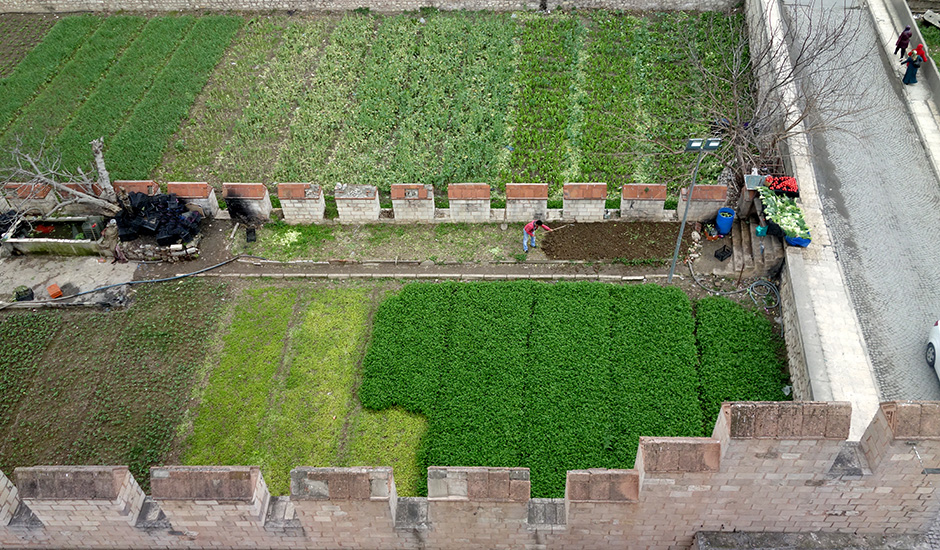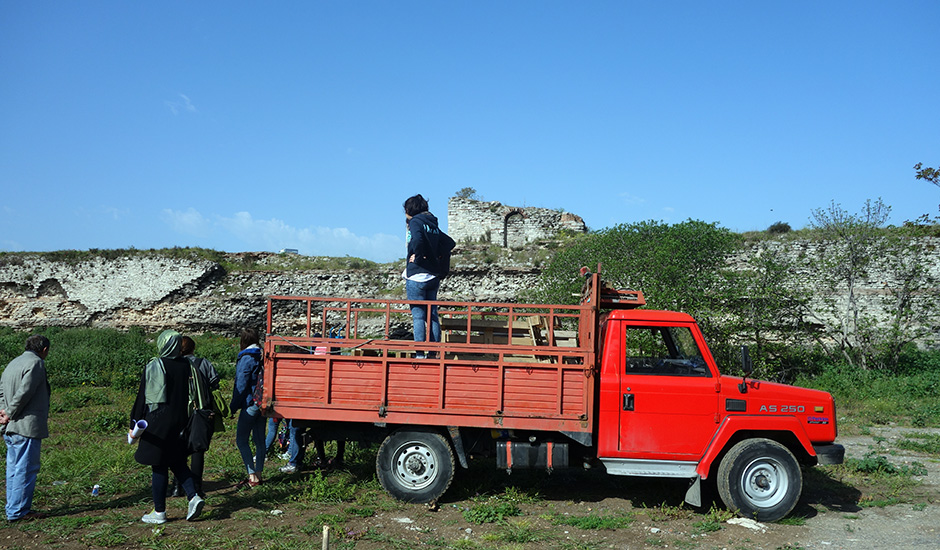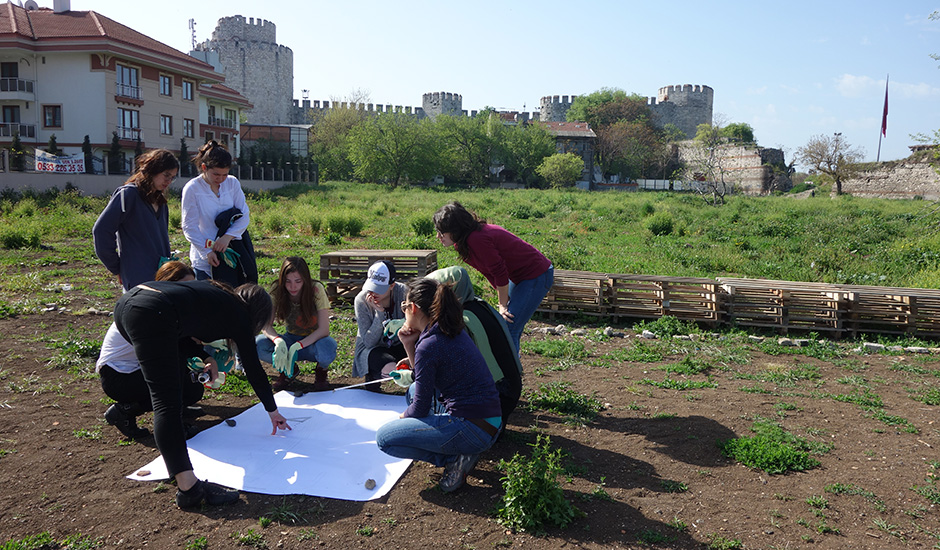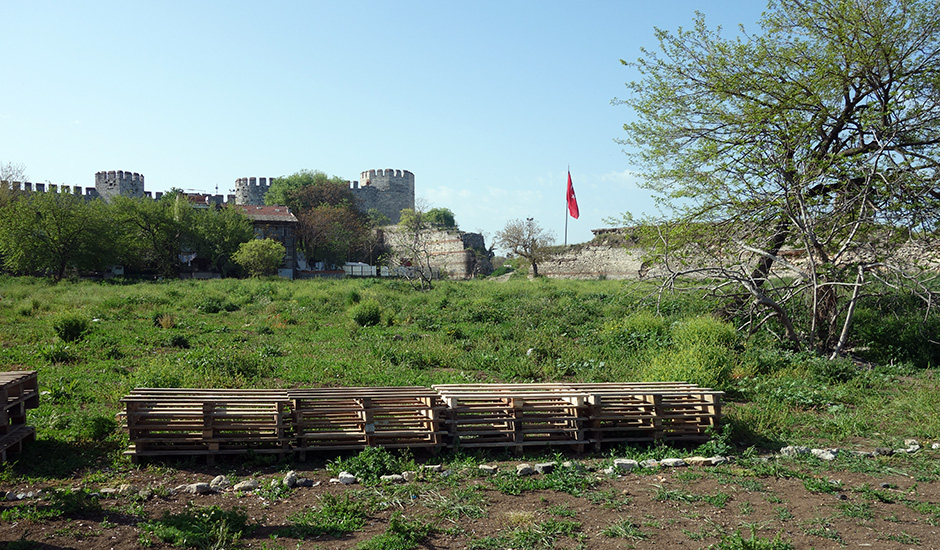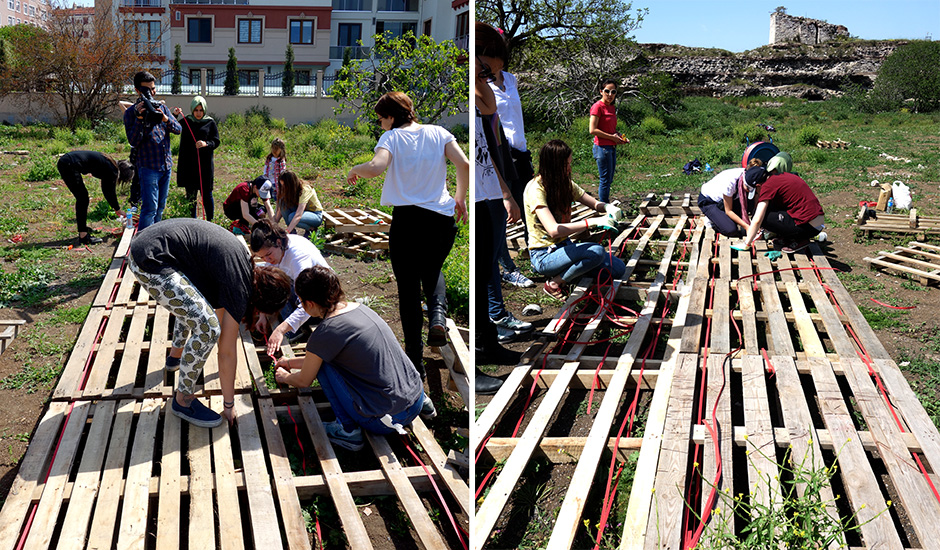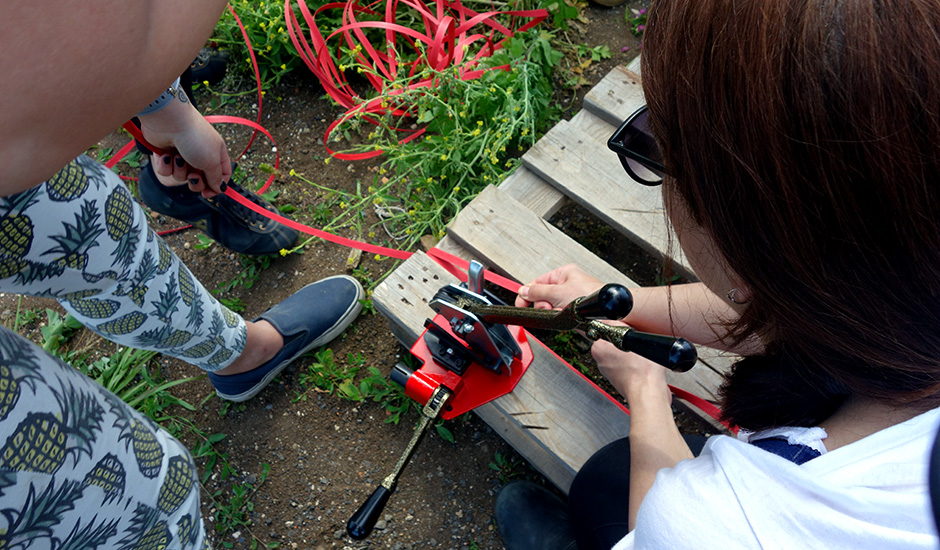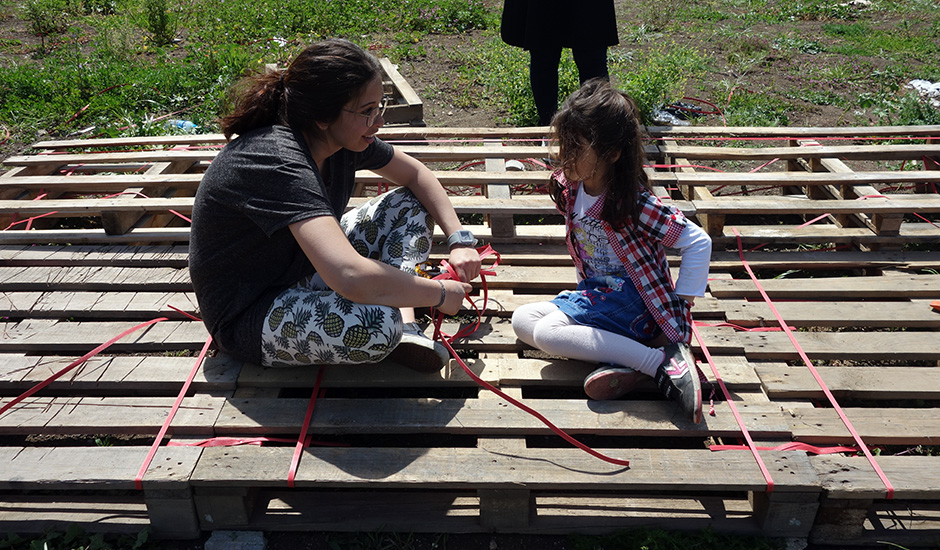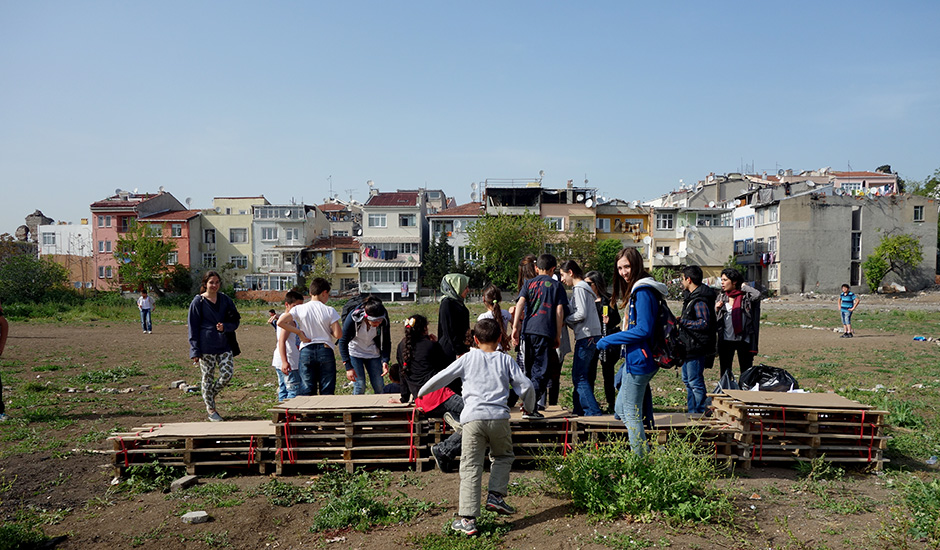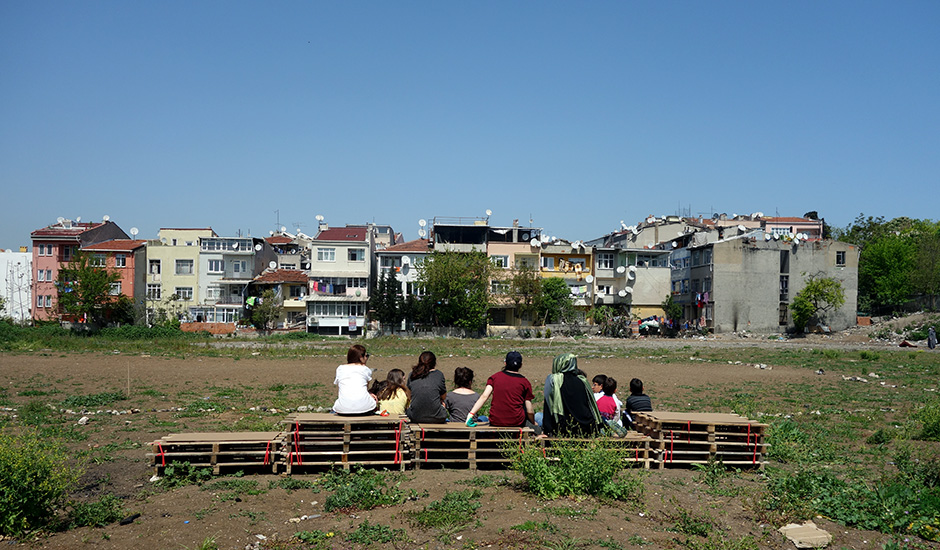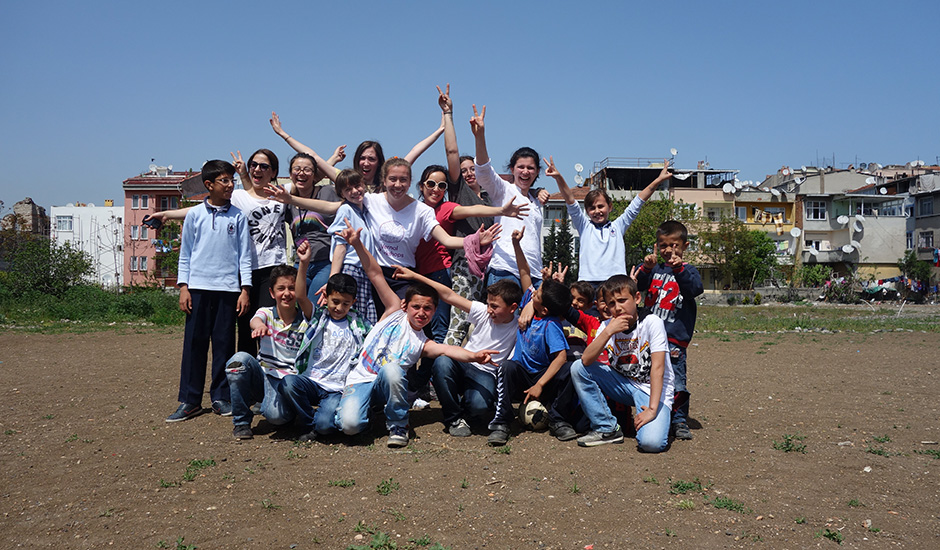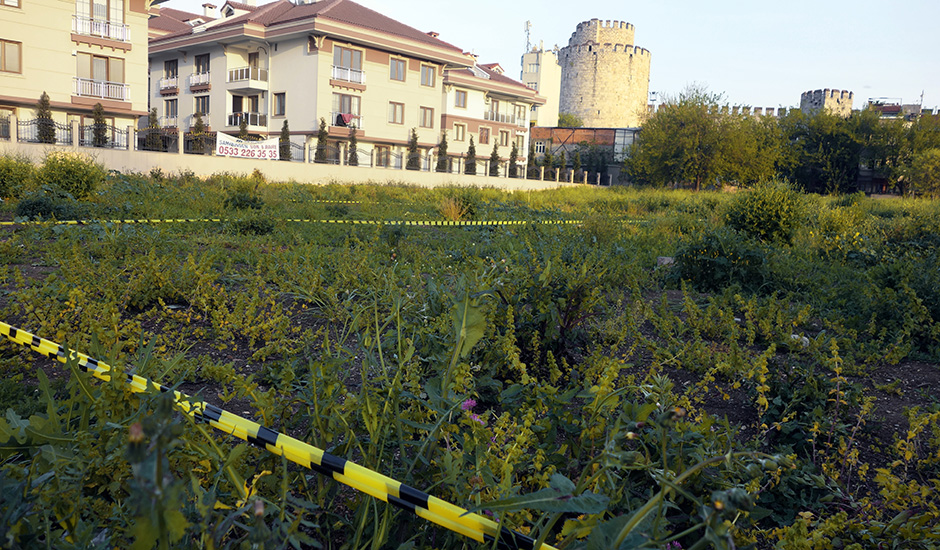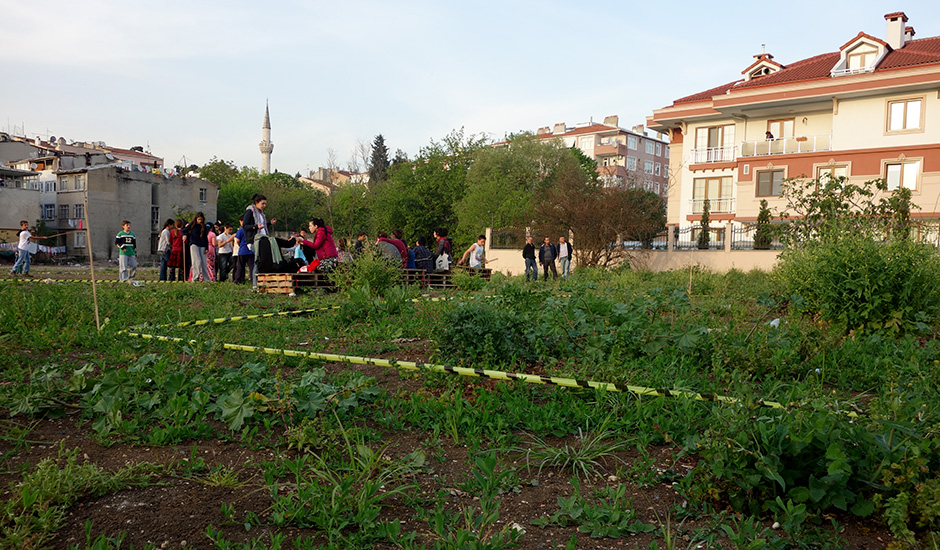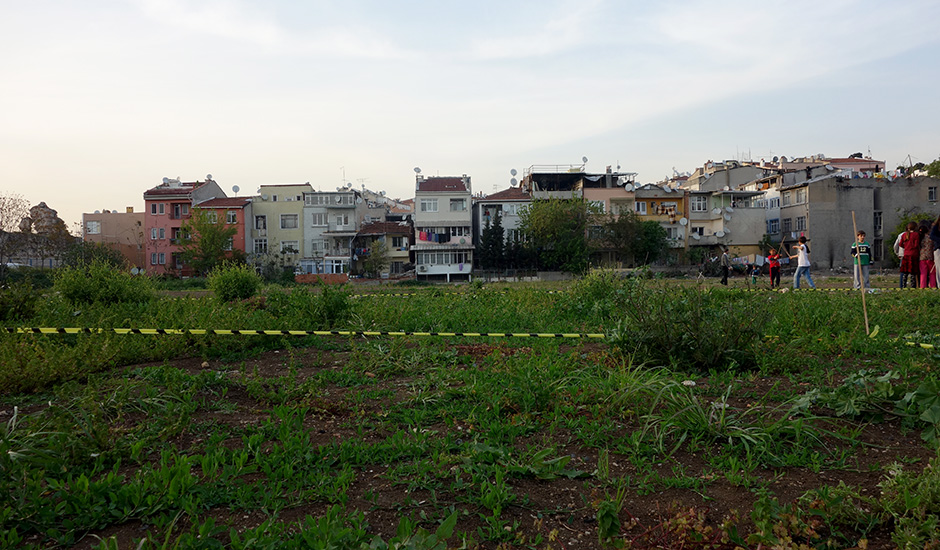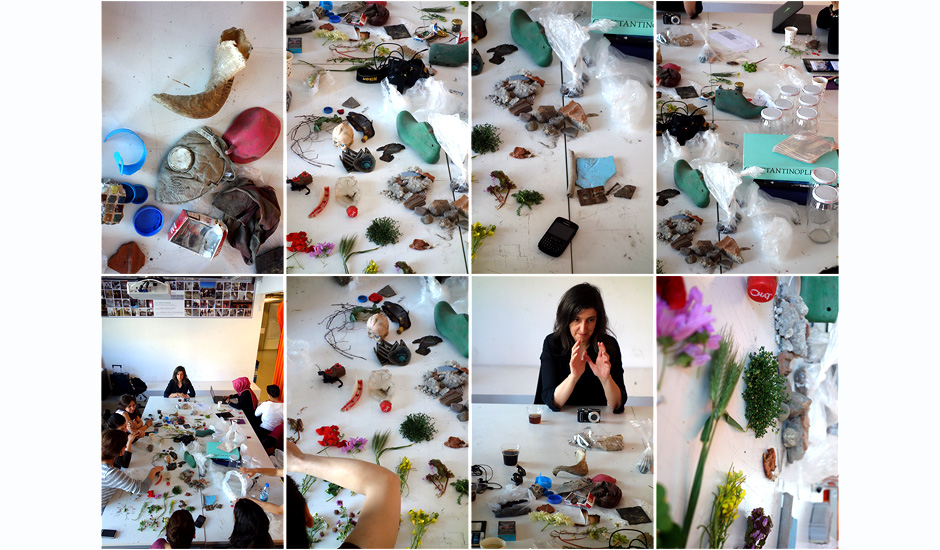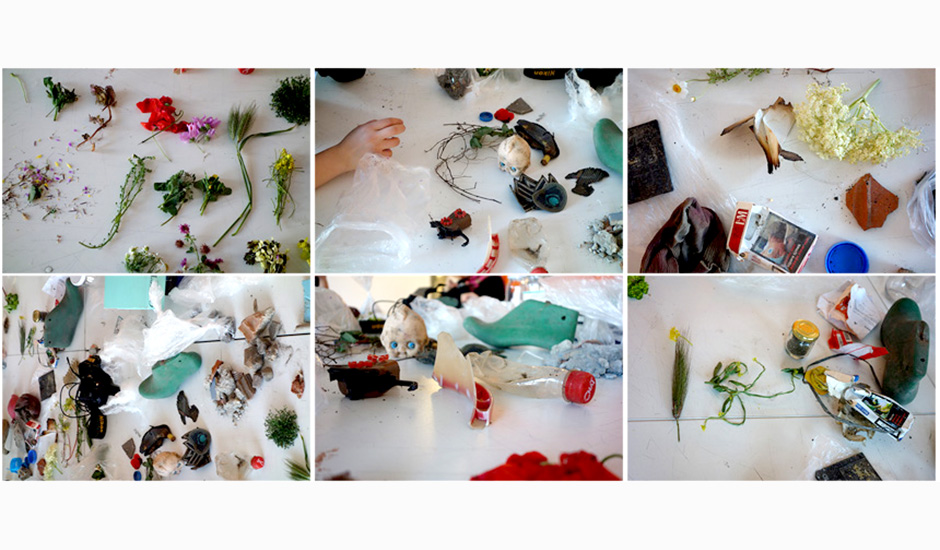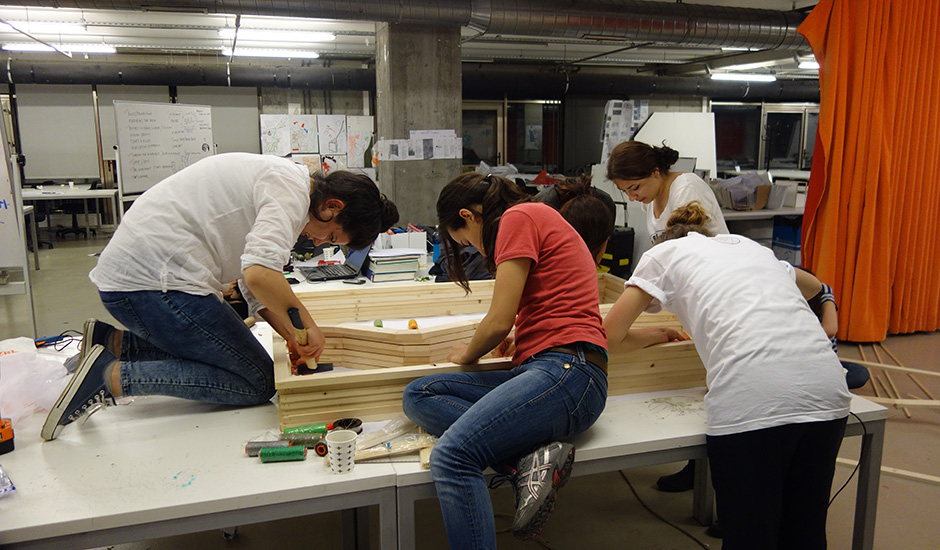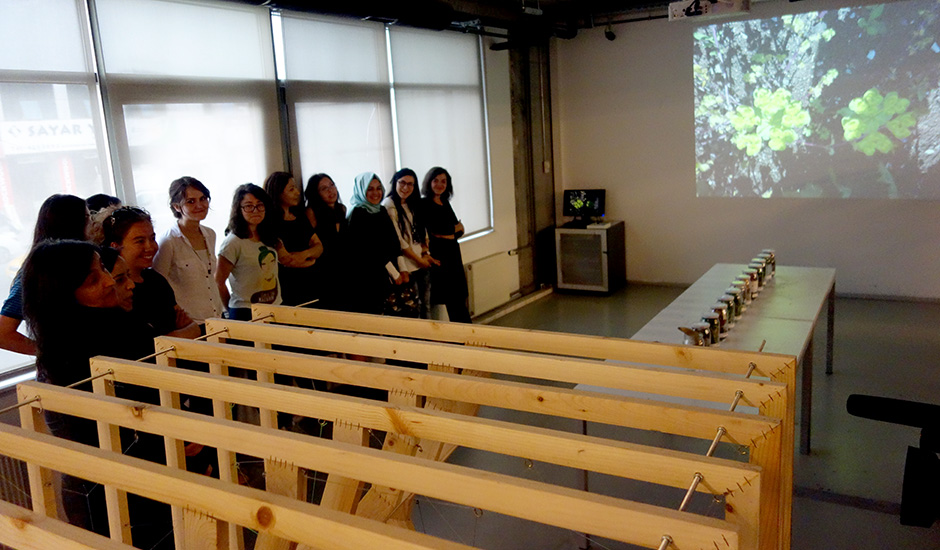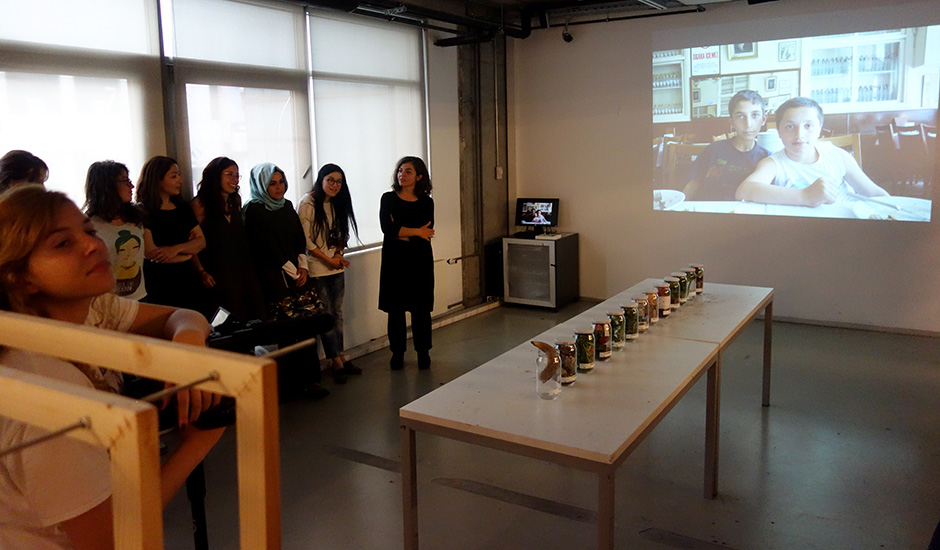Workshop
Bilgi University Vernal Workshops # 3 ‘Collaboration’, 2014
Location: Yedikule Bostanları, İsmail Paşa Bahçesi
In collaboration with Claudia Taborda
Related sites:
Yedikule Bostanları Koruma Girişimi
Tarihi Bostana Uydudan Parsel
YEDİKULE MON AMOUR
“Ecology shows us that all beings are connected. The ecological thought is the thinking of interconnectedness. The ecological thought is a thought about ecology, but it’s also a thinking that is ecological. Thinking the ecological thought is part of an ecological project. The ecological thought doesn’t just occur “in the mind.” It’s a practice and a process of becoming fully aware of how human beings are connected with other beings— animal, vegetable, or mineral…
“Ecological thinking might be quite different from our assumptions about it. It isn’t just to do with the sciences of ecology. Ecological thinking is to do with art, philosophy, literature, music, and culture. Ecological thinking has as much to do with the humanities wing of modern universities as with the sciences, and it also has to do with factories, transportation, architecture, and economics. Ecology includes all the ways we imagine how we live together. Ecology is profoundly about coexistence. Existence is always coexistence. No man is an island. Human beings need each other as much as they need an environment. Human beings are each others’ environment. Thinking ecologically isn’t simply about nonhuman things. Ecology has to do with you and me. “ Timothy Morton, The Ecological Thought. Cambridge: Harvard University Press, 2010
‘Rubbled Bostan’ was laid over with rubble during July 2013 by Fatih Municipality in an attempt to build a park. In place of this historic, unique and productive landscape that was tended by Bostancı Hasan Bey, today there is rubble. The children in the neighborhood have cleared a portion of this land and made themselves a soccer field. With students from Bilgi University and Claudia Taborda, a landscape architect, we arrived at the site with recycled pallets, packing ribbons, tape and wooden sticks. Improvised on site, we assembled a bleacher next to the soccer field. Additionally, with yellow and black striped tapes stretched between wooden sticks, we drew the buried parcel lines of the bostans (urban agricultural gardens) over ground in order to reveal them in hopes to one day see the produce flourish there once again. The physical outcomes of this workshop (bleachers and redrawing of the parcel lines) pales in comparison to the connections and exchanges that have happened within the time span of a day. While building the bleachers we have made many friends between ages 7-12, played soccer with them, met with their families and formed a lasting friendship with the neighborhood. We continue to meet every Sunday in our Yedikule Bostan School and continue to do painting, clay, printing, seed-bombing and similar workshops all day long with the children. This effort was about saving and bringing back a productive landscape that is unique to Istanbul, but more importantly we are interconnected now: bostancı (gardeners/farmers), children, families, produce, municipality, the initiative, dogs and others all under the sheltering sky.
BOSTANITY (Workshop Description)
Is neither a city of Bostans or a city for Bostans.
Bostan is site and typology. Bostanity is a para-site phenomenon to cultivate the urban void in Istanbul. And para-siting is an opportune [not necessarily opportunistic!] operation that surveys available voids to be occupied by bostan-types beyond site.
Cultivation is a process through which culture is inscribed into fields of social, political and economical spectrum.
Bostan-types will cultivate the voids and you will design and map bostanity as another cultural layer of Istanbul. A new configuration intertwined with the building fabric will emerge as a continuum of space for people.
Bostanity can lead participatory actions and become a contagious reclamation apparatus. It might never happen, too.
This workshop will investigate the history of bostans, the obliteration of collective memory, the relations of indispensability and complementarity between city and its surrounding or liminal productive lands, and it also will experiment the insertion of a new spatial and multifunctional and productive order. For the duration of the workshop, you will be a ‘bostancı’ experimenting—hands-on, in a bostan that sleeps beneath rubble in Yedikule, Istanbul.
Workshop participants: Kübra Koyuncu, Pelin Tatlıcı, Nurcan Bayrakcı, Deniz Eskicirak, Kübra Karahan, Zeynep Danacioglu, Fahrunnisa Ok, Yasemin Aydan, Saadet Yüncü, Yeşim Yıkılmaz & children and parents of Yedikule

